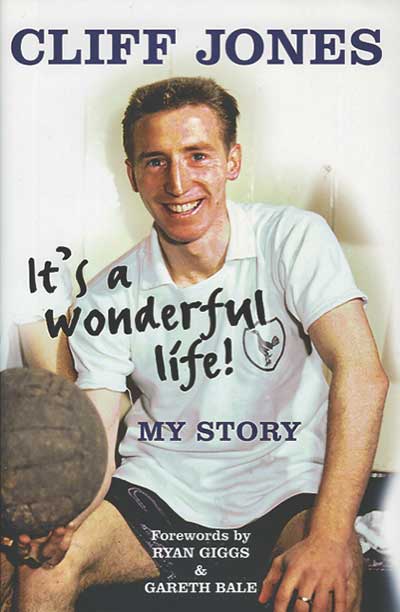
VSP, £20
Reviewed by Huw Richards
From WSC 359, January 2017
Buy this book
Was the basis for Spurs’ Double-winning campaign of 1960-61 supplied by a close-season trip to Moscow in 1959? Cliff Jones, left-winger in that memorable and beguiling team, suspects it might have been. He cites not only the bonding effect of experiencing a very different world, but a visit to the Bolshoi Ballet which left manager Bill Nicholson impressed by the athleticism of the dancers and led him to borrow elements of their training and dietary regimes.
That anecdote typifies this book’s great virtue. Jones is the narrator, but it is never just about him. A shrewd observer well served by co-writer Ivan Ponting, he is acutely aware of the qualities of others. Like many of his best stories, its point is about somebody else – in this case Nicholson’s relentless pursuit of ideas for improving his team.
Spurs fans seeking an inside view of their club’s greatest years will enjoy perceptive opinions of less-recalled figures such as the bulldozing centre-forward Bobby Smith, whose “conversations tended to be about his need for cash, no doubt as a result of his love of betting” and fellow winger Terry Dyson (“utterly irrepressible, both on the pitch and off it”) as much as memories of force-of-nature Dave Mackay and the idiosyncratically intelligent Danny Blanchflower. He makes a persuasive case for Nicholson as one of the great managers, architect of a team whose matchless single-season zenith has slightly obscured their achievement over several years, including consecutive FA Cups and Britain’s first European trophy.
But nor is this book just about Spurs. Jones offers similarly clear-eyed memories of his earlier years – a Swansea childhood, playing for Swansea Town under the singular coaching double-act of hard man Frank Barson and subtle Joe Sykes, his dockyard apprenticeship and national service.
We learn intriguingly that his most spectacular attributes, extraordinary pace and lethal effectiveness in the air, were developed only after his father Ivor, Swansea Town’s first international player in the 1920s, spotted deficiencies in his play. The most striking image in a well-illustrated book is the Army XI lineup in which his team-mates include Mackay, Duncan Edwards, Bobby Charlton and Bill Foulkes.
He is an amiable and generous narrator, “old school” in nostalgia for the values of his childhood and support for national service, but never bitter or reactionary. He is self-aware, recognising that he was unfitted to the playmaking role in which Spurs tried him after the death of close friend John White in 1964 and that, as “an instinctive sort of footballer rather than a deep thinker”, he was unlikely to have been a successful coach.
Those qualities make the revelation of his post-retirement alcoholism, missing the buzz of matchdays and team camaraderie, a jolt. But this too is confronted honestly, not least by his wife Joan in revisiting what must be desperately painful memories. That he came through it, helped among others by fellow addict Jimmy Greaves, is in keeping with a decent life well lived, and now very well retold.